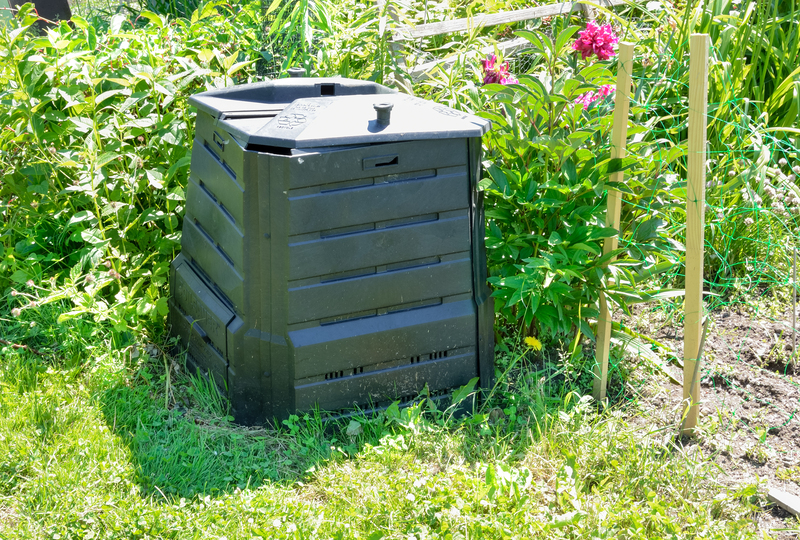
London is a bustling, dynamic city that is home to over 9 million people. With such a large population, it comes as no surprise that food waste is a major issue in the capital. In fact, it is estimated that Londoners waste around 900,000 tonnes of food every year, equivalent to filling Wembley Stadium nine times over. This not only has detrimental effects on the environment but also has serious economic and social implications. However, there are steps being taken to reduce and combat food waste in London. In this article, we will explore the issue of food waste in London, the actions being taken to tackle it, and the pros and cons of these initiatives.
The Problem of Food Waste in London
Food waste refers to any edible food that is discarded or left uneaten. It can occur at any point along the supply chain - from production and distribution to retail and household levels. In London specifically, a significant amount of food waste occurs at the consumer level. This is due to factors such as overbuying, expiration dates, and improper storage and handling.
The consequences of this wastage are far-reaching. First and foremost, food waste has a detrimental impact on the environment. When food decomposes in landfills, it produces methane gas which contributes to climate change. Transportation of wasted food also requires energy consumption and adds to carbon emissions. Furthermore, producing food that ultimately goes to waste means unnecessary use of resources such as water and land.
Economically, food waste costs the UK an estimated ?20 billion each year. This includes costs associated with disposal, transportation, and lost potential revenue for businesses. On a social level, food waste means that precious resources are being wasted while millions go hungry every day.
Initiatives Against Food Waste in London
Fortunately, various initiatives have been implemented in London to tackle the issue of food waste. One notable example is the 'Love Food Hate Waste' campaign, run by the Waste and Resources Action Programme (WRAP). This initiative aims to raise awareness and educate Londoners on how they can reduce food waste at home through proper planning, storage, and creative use of leftovers.
Another noteworthy initiative is the 'FareShare' program, which collects surplus food from supermarkets and redistributes it to charities that provide meals to those in need. Through this program, more than 200 charities in London receive free food supplies, helping them to support vulnerable members of the community.
The Pros and Cons of These Initiatives
On one hand, these initiatives have had a positive impact on reducing food waste in London. The 'Love Food Hate Waste' campaign has been successful in changing people's behavior and attitudes towards food waste. According to WRAP, households participating in the campaign have reduced their food waste by 15%, saving an average of ?60 per month. Similarly, the 'FareShare' program has been able to provide over 33 million meals to those in need across the UK.
On the other hand, these initiatives also come with their own set of challenges. For instance, there is still a lack of consistency and coordination between local authorities and supermarket chains when it comes to food redistribution. In addition, the success of these programs heavily relies on individuals actively taking part and may not be effective for those who are not aware or do not have access to such initiatives.
Tips for Reducing Food Waste at Home
Besides participating in these initiatives, there are also simple steps individuals can take at home to reduce their own food waste. Some tips include:
1. Plan meals ahead: Know what you have in your pantry and plan your meals accordingly.
2. Buy only what you need: Avoid impulse buys and stick to a shopping list.
3. Store food properly: Learn about proper storage techniques for different types of food to keep them fresh for longer.
4. Get creative with leftovers: Leftovers can be repurposed into new dishes, reducing the need to buy more food.
5. Compost food scraps: Instead of throwing away food scraps, use them to create nutrient-rich compost for your garden.
Takeaways
Food waste is a major issue that affects the environment, economy, and social welfare in London. However, through initiatives such as the 'Love Food Hate Waste' campaign and 'FareShare' program, progress is being made to reduce and combat food waste. Individuals can also play their part by following simple tips to reduce food waste at home.
In conclusion, taking action against food waste in London requires a collective effort from individuals, businesses, and government organizations. By raising awareness and implementing effective strategies, we can work towards creating a more sustainable and equitable society. Let's all do our part in reducing food waste and making London a greener and more prosperous city for all.

